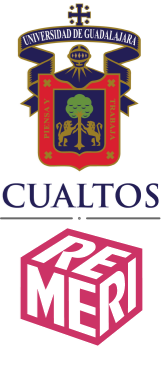Please use this identifier to cite or link to this item:
http://repositorio.cualtos.udg.mx:8080/jspui/handle/123456789/87Full metadata record
| DC Field | Value | Language |
|---|---|---|
| dc.contributor.author | Fregoso Peralta, Gilberto | - |
| dc.date.accessioned | 2015-02-26T18:05:41Z | - |
| dc.date.available | 2015-02-26T18:05:41Z | - |
| dc.date.issued | 1996 | - |
| dc.identifier.citation | Fregoso Peralta, G. (1996). Las libertades de pensamiento y expresión segun la teoría liberal clásica. Comunicación Y Sociedad, 195–232. Retrieved from http://www.coneicc.org.mx/index.cfm?contenido=/centro_documentacion/nota.cfm&identifier=oai:coneicc.iteso.mx:9790&interno=yes | es, en |
| dc.identifier.issn | 0188-252X | - |
| dc.identifier.uri | http://148.202.112.41:8080/jspui/handle/123456789/87 | - |
| dc.description.abstract | This article presents a recapping of classic liberal thought (from the 17th to the 19th century) which establishes the bases for what is known today as the right to freedom of information and speech. The author reviews the principal-ideas of John Milton, John Locke, Voltaire, D' Alembert, Diderot, Kant and Stuart Mill, and urges us to ponder their systematic, captivating and still valid vision, in relation to censorship, intolerance and absolutism in regards to expressing ideas. | es, en |
| dc.language.iso | es | es, en |
| dc.publisher | Comunicación y Sociedad (DECS Universidad de Guadalajara) | es, en |
| dc.title | Las libertades de pensamiento y expresión según la teoría liberal clásica | es, en |
| dc.type | Article | es, en |
| Appears in Collections: | 6308 Artículos | |
Files in This Item:
| File | Description | Size | Format | |
|---|---|---|---|---|
| Las libertades de pensamiento.pdf | Documento | 4.44 MB | Adobe PDF | View/Open |
| Enlace a_Las libertades de pensamiento y expresión según la teoría liberal clásica.htm | Enlace a publicación | 22.31 kB | HTML | View/Open |
Items in DSpace are protected by copyright, with all rights reserved, unless otherwise indicated.


